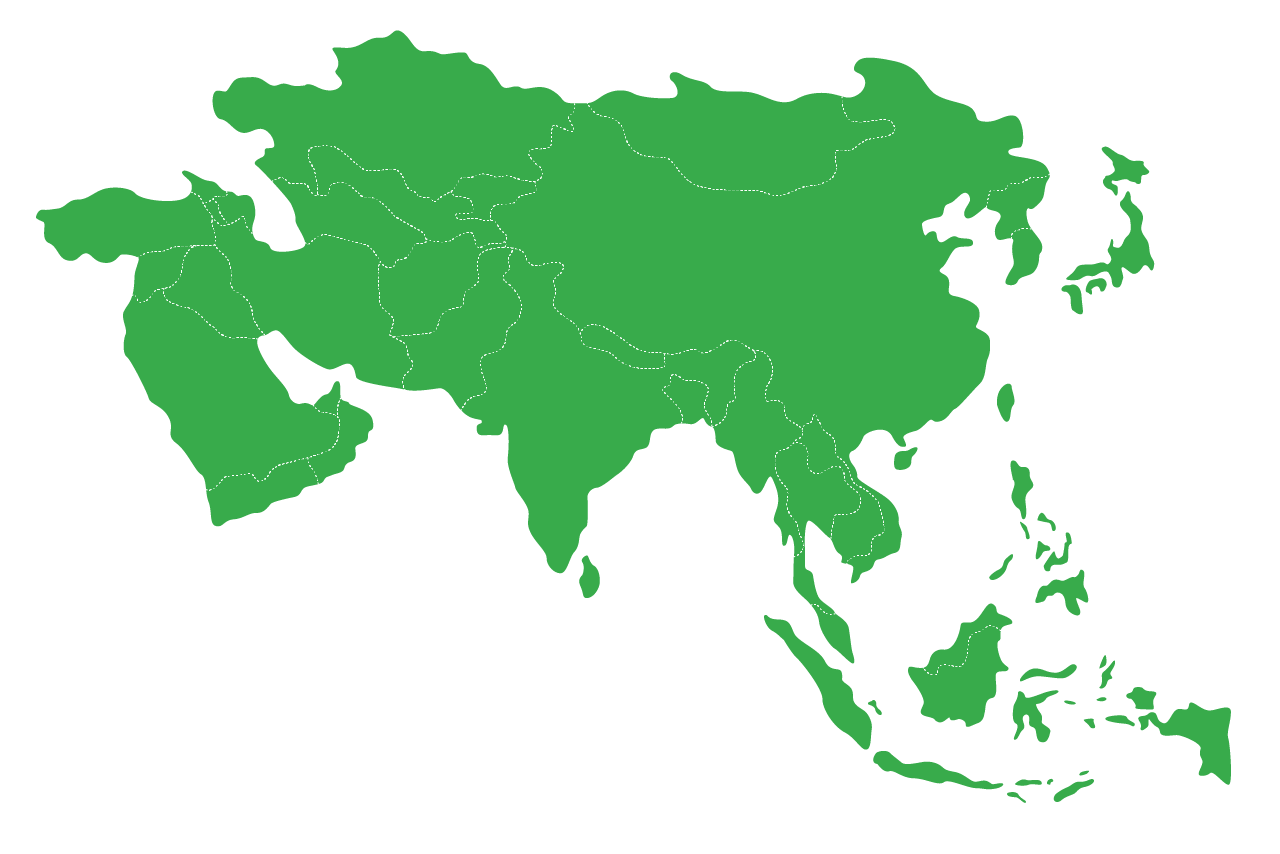None can dispute the physical and socioeconomic impacts of climate change across the world. Scientists continue to warn countries against the irreplaceable consequences of greenhouse gases or GHG gases crossing the threshold.

APAC and ESG RegulationsUshering sustainability one country at a time
Climate change has made irreversible damage across the world. As global warming continues to rise, scientists have warned nations against the catastrophic consequences of temperatures crossing the threshold.
Nations and businesses have joined hands to curb these drastic changes by implementing climate change technologies to accelerate net-zero initiatives. However, the process of decarbonization is moving forward at a snail’s pace as different countries have differing views about when and how they can reduce their fossil fuel consumption.
On a positive note, the APAC region is showcasing promising growth. As per the McKinsey report, more than 15 countries and 670 enterprises have set or committed to set emission-reduction targets. These are positive changes as they will generate opportunities in the green technology sector. According to another McKinsey report, green technology is expected to reach between $4 trillion and $5 trillion by 2030.
These numbers promise more sustainable opportunities across APAC nations and these countries too, are taking strides to reach their net-zero goals. In the next section, we shall see the major APAC players and their sustainable initiatives.
APAC regions and ESG regulations: What’s new
- China
To meet the net-zero target by 2060, Bloomberg news mentioned that China’s biggest companies and government-backed think tanks have set a 100 variable standard for Chinese enterprises to report on ESG metrics. This standard aligns with the global benchmark of draft rules issued by the International Sustainability Standards Board (ISSB). - Hong Kong
In November 2021, Hong Kong Exchanges and Clearing Limited (HKEX) published guidance to listed issuers on climate disclosures. Following the guidelines of the Taskforce on Climate-related Financial Disclosures (TCFD), the guidance on Climate Disclosures will enable enterprises to assess and disclose their response to ESG risks arising from climate change. All businesses listed under HKEX shall be subject to this regulation, whether through mandatory disclosures or “comply or explain” provisions. - Singapore
Responsible Investor has reported that Singapore has launched their third and final green taxonomy consultation. The government has asked various stakeholders to share their opinion on screening criteria for the top five impact sections and a potential ‘Do No Significant Harm’ section. Previously the island nation had issued the Singapore Exchange (SGX) to provide guidance on sustainability reporting for the listed companies, and they also launched the SGX Sustainability Leaders index in 2020, based on a comprehensive set of ESG criteria, to recognize and encourage companies to improve their ESG performance. - India
Business Standard has recently reported that CareEdge Research conducted a survey and analyzed over 1,000 reports over the past three fiscal years. They found that ESG reporting by Indian organizations has improved by 160 percent. This is a direct result of SEBI pushing for ESG disclosures. This move prompted enterprises to increase putting their ESG data from 127 in fiscal 2020 to 330 in 2022 fiscal year. - Japan
As per a report in Japan Times, the Financial Services Agency will investigate any allegations of greenwashing made by asset managers in charge of ESG-related portfolios. Hideki Takada, Director of the Financial Services Agency, indicated in a that severe regulatory actions would be taken against such malicious acts. Some of this criticism was caused by the $9 billion (1.18 trillion yen) Mizuho Financial fund’s inability to be transparent about its environmental initiatives. - Thailand
The Stock Exchange of Thailand (SET) has implemented an ESG disclosure and reporting framework for listed companies that include reporting guidelines on a multitude of ESG parameters. Furthermore, the SET has actively been involved and introduced an ESG index and an ESG disclosure rating system to encourage companies to improve their ESG performance. They have also introduced Sustainability Disclosure Guidelines – which helps them promote the ESG-related disclosure of the listed companies. For enterprises choosing to report their ESG performance, the SET allows using the Global Reporting Initiative (GRI) or the Sustainability Accounting Standards Board (SASB) frameworks. - Indonesia
While a legal or government-led framework is absent, some organizations such as Indonesian Sustainable Finance Forum (ISFF), and initiatives have been created to promote ESG practices and reporting in the country. Speaking of ISFF, they plan to promote sustainable finance and responsible investment in the country. To do so, they devised guidelines for businesses and established the Indonesian Sustainable Finance Index (ISFI) to recognize companies that have demonstrated strong ESG performance. The Indonesia Stock Exchange (IDX) also launched the IDX Sustainability Index (IDXSI) in 2020, which is designed to recognize publicly listed companies that demonstrate strong ESG performance and to encourage companies to improve their ESG performance.
Based on these trends, we notice that most of the APAC nations are taking strong strides toward achieving their net-zero commitments. However, it is crucial to note that these regulations and requirements also bring forth challenges. In the next section, let us look at some of the emerging challenges in the APAC region.
Addressing challenges in the APAC region
While the APAC region has seen significant increase in implementing ESG strategies, one of the key challenges is the prevalence of a multitude of ESG regulations. This means that different countries will be focusing on different regulations, which poses a serious challenge for enterprises with a global presence. It means that they must remake their sustainability report as per different regulations, costing time and effort.
Additionally, several countries continue to choose fossil fuels and push back their net-zero goal. This seem to indicate that sustainability has been a façade used for greenwashing. Only with time can a concrete plan be formulated that is congruent across the APAC region giving shape to a net-zero world.
Learn more about the APAC nations and their contribution towards ESG regulations in our eBook, APAC and ESG: Stepping into 2023 the sustainable way.
Other resources

Sustainability and ESG reporting in India
Corporate sustainability practices in India have evolved significantly over the last decade. Businesses are re-thinking long held sustainability practices keeping in view changing consumer expectations and to get ahead of competition.

Sustainability frameworks 101
As nations, organizations, and individuals experience the effects of unsustainable operations first-hand; every global economic, social, governance and environmental entity are expected to act responsibly.

Corporate sustainability practices in India have evolved significantly over the last decade. Businesses are re-thinking long held sustainability practices keeping in view changing consumer expectations and to get ahead of competition.

As nations, organizations, and individuals experience the effects of unsustainable operations first-hand; every global economic, social, governance and environmental entity are expected to act responsibly.